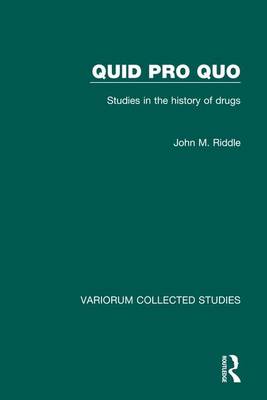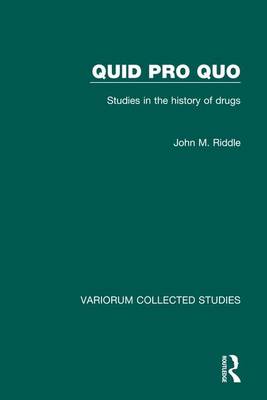
Je cadeautjes zeker op tijd in huis hebben voor de feestdagen? Kom langs in onze winkels en vind het perfecte geschenk!
- Afhalen na 1 uur in een winkel met voorraad
- Gratis thuislevering in België vanaf € 30
- Ruim aanbod met 7 miljoen producten
Je cadeautjes zeker op tijd in huis hebben voor de feestdagen? Kom langs in onze winkels en vind het perfecte geschenk!
- Afhalen na 1 uur in een winkel met voorraad
- Gratis thuislevering in België vanaf € 30
- Ruim aanbod met 7 miljoen producten
Zoeken
Omschrijving
All too often ancient herbal and other remedies have been dismissed as 'simply' folklore, of no relevance to medical science. John Riddle's approach, however, has been to explore the history of drugs with the hypothesis that ancient and medieval medicines were effective - a methodology that he expounds in the final essay (hitherto unpublished). Indeed, he shows, both from detailed case-studies and from the comparison of the listings given by classical and medieval authorities with those in modern pharmacopoeias, that our ancestors had discovered and made effective use of many of the drugs used in medicine today, from antiseptics and analgesics to oral contraceptives, even chemotherapy for cancer. There is the suggestion, therefore, that more careful examination and identification of the drugs used in the past may reveal chemicals that can be exploited anew. Central to these studies is the investigation of how a drug was used and how knowledge about it was transmitted - and perhaps also distorted in the process - from the Classical world through the Middle Ages.
Specificaties
Betrokkenen
- Auteur(s):
- Uitgeverij:
Inhoud
- Aantal bladzijden:
- 330
- Taal:
- Engels
- Reeks:
- Reeksnummer:
- nr. 367
Eigenschappen
- Productcode (EAN):
- 9780860783190
- Verschijningsdatum:
- 16/04/1992
- Uitvoering:
- Hardcover
- Formaat:
- Genaaid
- Afmetingen:
- 152 mm x 229 mm
- Gewicht:
- 612 g

Alleen bij Standaard Boekhandel
+ 143 punten op je klantenkaart van Standaard Boekhandel
Beoordelingen
We publiceren alleen reviews die voldoen aan de voorwaarden voor reviews. Bekijk onze voorwaarden voor reviews.









